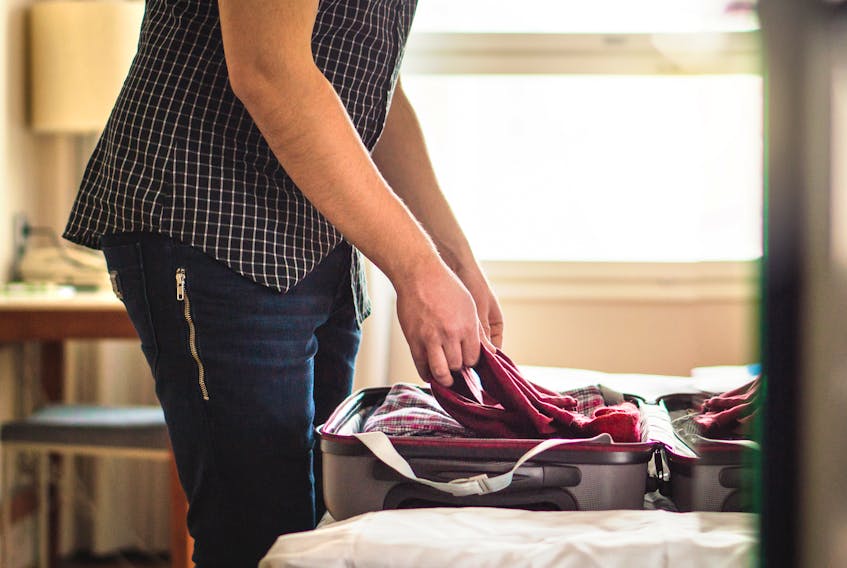CENTRAL, N.L. — Although big centres such as Toronto and Vancouver have been grappling with issues related to Airbnb and the sharing economy in the tourism space for a long time, it is relatively new for Newfoundland and Labrador in general, and central Newfoundland specifically.
In Part II, we dig deeper into the divide.
Fairness
The most frustrating thing for licensed tourist accommodators is that existing regulations are not being applied equally to traditional and Airbnb operators, according to Wayne Hallett, who operates the Prints of Whales Inn in Sandringham. He noted 64 per cent of respondents to a survey he and a number of other bed and breakfast owners conducted want the current Tourist Establishment Regulations to be enforced.
“The problem is that the province is not pursuing the issue of ensuring that all accommodations are licensed, and in the absence of that Airbnb steps in and provides a very visible platform for them to advertise on,” he said.
Hallett himself has noticed a drop in business in recent years and while he admits to not having hard data, he believes it is a result of non-traditional operators, and offered anecdotal evidence.
“If we can’t guarantee to our guests to the province some quality of stay, if it becomes a free-for-all with no regulation, where people choose to insure or not be insured, we’re just playing with disaster.”
— Wayne Hallett, Prints of Whales
“It’s hard to know because you don’t know with the fluctuations in the industry, you don’t know if your reservations are down this month just because of pure people around or because they’ve chosen to go to an unlicensed accommodation instead,” he said. “So it’s hard to pin that down, but generally the comments I’m hearing from small accommodators, is that they see a significant impact.
“(For example), the July 1 weekend, they say traditionally the July 1weekend they’re always full, and now the July 1 weekend they’re not, but there are more people in the area so they have to be staying somewhere.”
Brandon Copeland, a St. John’s Airbnb operator, does not think non-traditional accommodations should be treated the same because they are not the same.
“The majority of owners are operators second, and homeowners first,” he said. “Stats will tell you that the majority of Airbnb hosts live in the home they rent. There are significant challenges to trying to treat someone's spare bedroom like a hotel room.”
Danger
Another argument against unconventional tourist establishments that repeatedly comes up is that it presents a danger to individual guests and also the reputation of the tourism industry.
“If we can’t guarantee to our guests to the province some quality of stay, if it becomes a free-for-all with no regulation, where people choose to insure or not be insured, we’re just playing with disaster and eventually something is going to go awry and somebody is going to be harmed in some way and the province will end up with a black eye as a result and it will undo all the publicity that we’ve managed to build on over the last number of years,” Hallett said.
Copeland thinks that argument is way overblown.
“I believe that talk of danger to consumers is incredibly disingenuous,” he said. “The platforms that are utilized to book these non-traditional accommodations have built-in rating systems and review systems that quite frankly are, in my opinion, more valuable than the regulated systems the government uses. Real guests, who stay at the residence (as opposed to an inspector who pops in for an appointment) provide thorough feedback for future guests to read.”
Airbnb has its own policies about trust and safety, which can be found here.
“The majority of owners are operators second, and homeowners first. Stats will tell you that the majority of Airbnb hosts live in the home they rent. There are significant challenges to trying to treat someone's spare bedroom like a hotel room.”
-Brandon Copeland, Airbnb operator
Furthermore, Copeland believes safety is already covered by other legislation.
“There currently exists regulation around how a home must be built,” he wrote in a blog post about the subject. “Safety regulations are very clear about quality of structure and what is required.
“This regulation is acceptable for residents, and it is acceptable for friends and family that visit the property. Why then, is this proposed to be unacceptable for strangers utilizing the space in the same way that the aforementioned users use the space?”
He also disputes the negative impact on Newfoundland and Labrador tourism.
“I don't believe that Airbnb is any sort of threat to the province's industry,” he said. “Many studies suggest that it actually strengthens the tourism industry—Airbnb guests are known to spend more time, and more money, in the areas they visit. For most folks who operate in tourism, Airbnb is a benefit to their businesses.”
Taxation
Another thing that irks traditional operators is that many of the new entries do not collect and pay taxes, again creating an unfair advantage for Airbnb hosts. Hallett has even been asked by a guest, he said, if he would drop the taxes if the guest paid cash.
“We’re losing all of that here,” he said. “Airbnb is not going to enforce the province’s statutes and so if the province is doing nothing to ensure that accommodations are licensed and Airbnb is not going to insist that they’re licensed, it just doesn’t make any sense.
“The province is losing out on significant dollars from those people who choose to operate unlicensed.”
Part III
In final installment of this series, The Central Voice will look further into the taxation issue and examine where Newfoundland and Labrador may be headed in terms of regulation.









